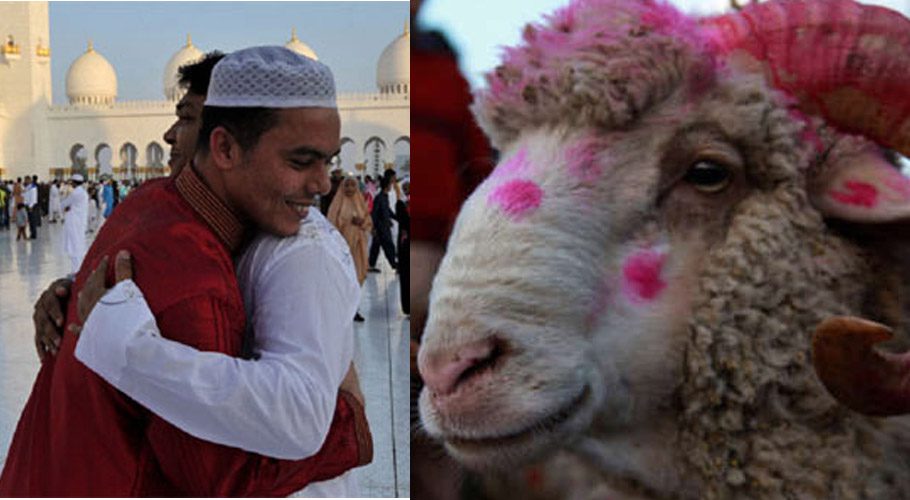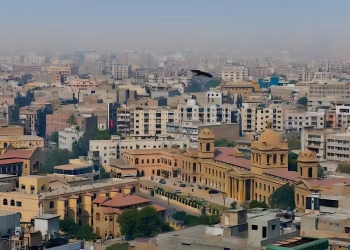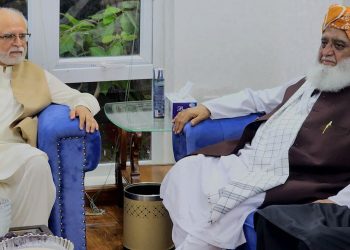The second significant religious festival of Islam, Eid al-Azha, will be soon observed. The festival is being celebrated in Gulf countries, Saudi Arabia, the USA, and Canada today while Muslims living in Pakistan and other countries will celebrate this holiest festival tomorrow.
The incident of Hazrat Ibrahim (PBUH) is presented as an example on the occasion of Eid-ul-Azha which shows us the philosophy of sacrifice. The important lesson of Eid is to close the gap between rich and poor and to take care of the needy in the distribution of sacrificial meat.
Dream of Allah’s chosen prophet
If an ordinary person dreams, it is not given so much importance, but the importance of the Prophet’s dream has been significant in every age so was the dream of Hazrat Ibrahim (PBUH).
It is said that Prophet Ibrahim (PBUH) experienced a dream one night, in which Allah told him to sacrifice Ismail (AS), his beloved son. The dream was in fact, a message from Allah after which comes the incident of sacrifice which formed the basis of Eid-ul-Azha.
The philosophy of sacrifice
Prophet Ibrahim (PBUH) was subjected to a great test, yet he was fully prepared to follow Allah’s command and do as He instructed. He took his son to the top of Mount Arafat and brought with him a knife and rope. Upon reaching an appropriate place, he told his son about his dream and what Allah had commanded him to do. Being an obedient son, Prophet Ismail (AS) immediately obliged to the wishes of Allah (SWT) and his father and asked that his hands and legs be tied so that he may not struggle and that his father blindfolds himself so that he does not have to witness him suffer.
Prophet Ibrahim (PBUH) did as Ismail (PBUH) had said. Blindfolded and with the knife in his hands, he did as Allah (SWT) had asked of him. When he took the blindfold off, to his surprise, he saw the body of a dead ram in front of him. Ismail (AS) was completely unharmed standing right next to him. At first, he thought that something had gone horribly wrong and that he had disobeyed the order of his Creator. But then he heard a voice telling him that Allah looks after his followers and that he need not worry. A divine miracle had taken place. Prophet Ibrahim (PBUH) and Ismail (PBUH) had just passed a difficult test from Allah and that is the philosophy of sacrifice.
General traditions of Eid-ul-Azha
Since then, every year on the 10th of Zil Hajj, Muslims from around the world celebrate Eid-ul-Azha and perform Qurbani to remember what Prophet Ibrahim (PBUH) did.
Therefore, Qurbani for Muslims is a lesson in obedience and submission.
The important thing is that on the day of Eid-ul-Azha, there is nothing better in the sight of Allah than the sacrifice of a halal animal, so the scholars prefer the help of halal animal meat to the help of the poor from the money of the sacrifice. As we remember the story of Prophet Ibrahim (PBUH)’s sacrifice every year, and we remember the obedience, devotion.
A brief overview of Hajj
According to Islamic principles, Hajj is a once-in-a-lifetime obligation for every able-bodied adult Muslim. Once a year, Muslims of every ethnic group, colour, social status, and culture gather together in Mecca and stand before the Kaaba praising Allah together. It is a ritual that is designed to promote the bonds of Islamic brotherhood and sisterhood by showing that everyone is equal in the eyes of Allah.
In the first verse of the fourth chapter of the last inspired book of the Qur’an, Allah Almighty says that you cannot attain righteousness (the highest position) unless you sacrifice what you love. And that is the philosophy of sacrifice.
Good deeds towards the poor
Helping deserving and poor people can be done all year round but sharing their happiness on the occasion of Eid-ul-Azha is an important and recommended act. There is nothing wrong with sacrificing money, but there is nothing wrong with helping the poor with other money, but it is highly commendable.
Every year, 1 to 7 portions of sacrificial meat are made. The Muslim nation is urged to take special care of the poor, the needy, and the orphans who do not have meat to eat all year round.



































